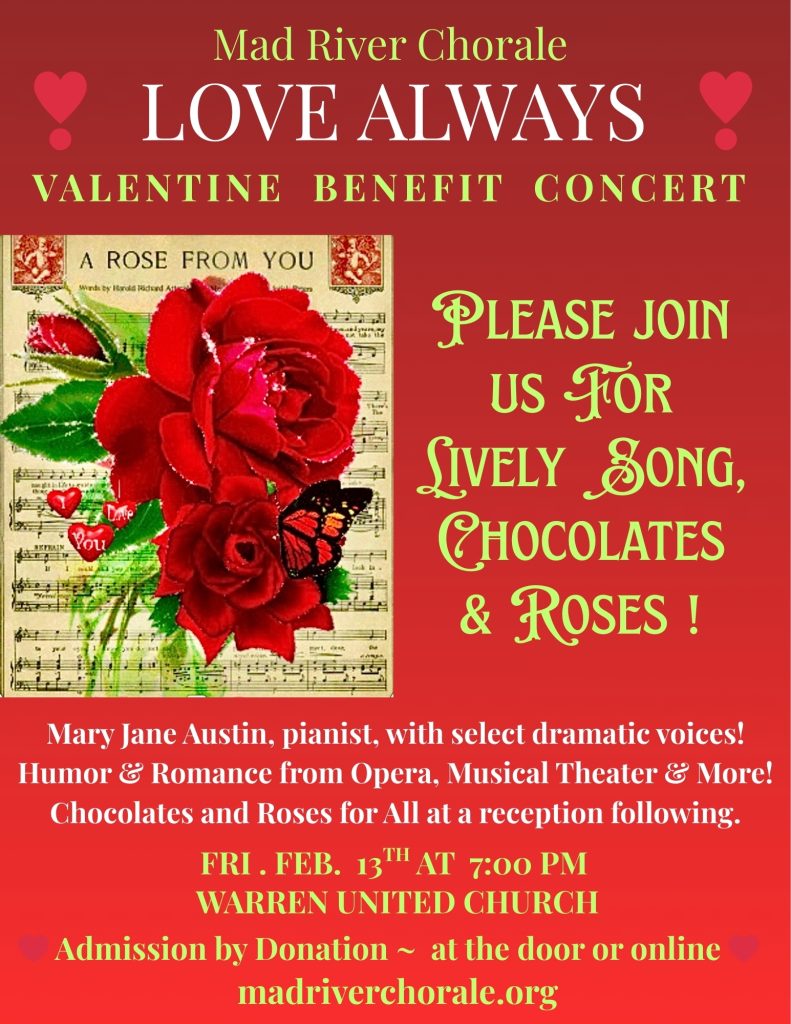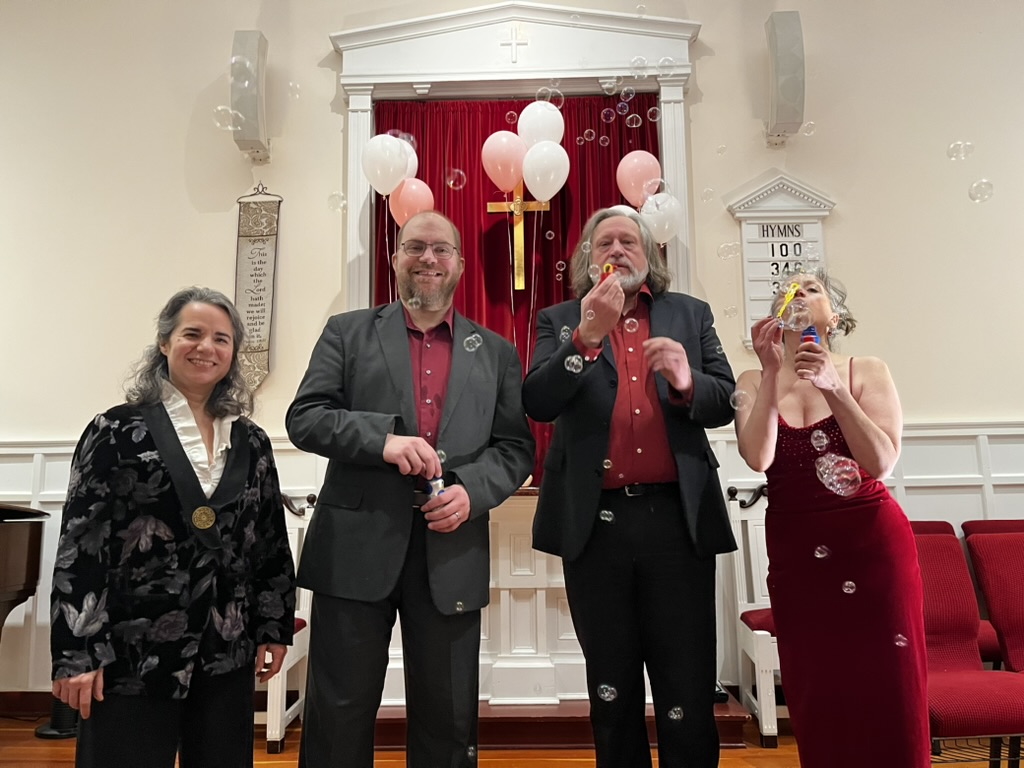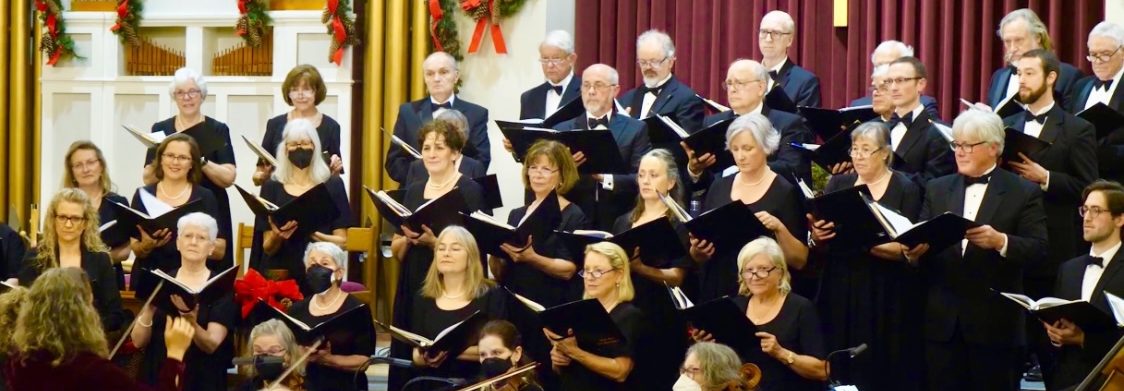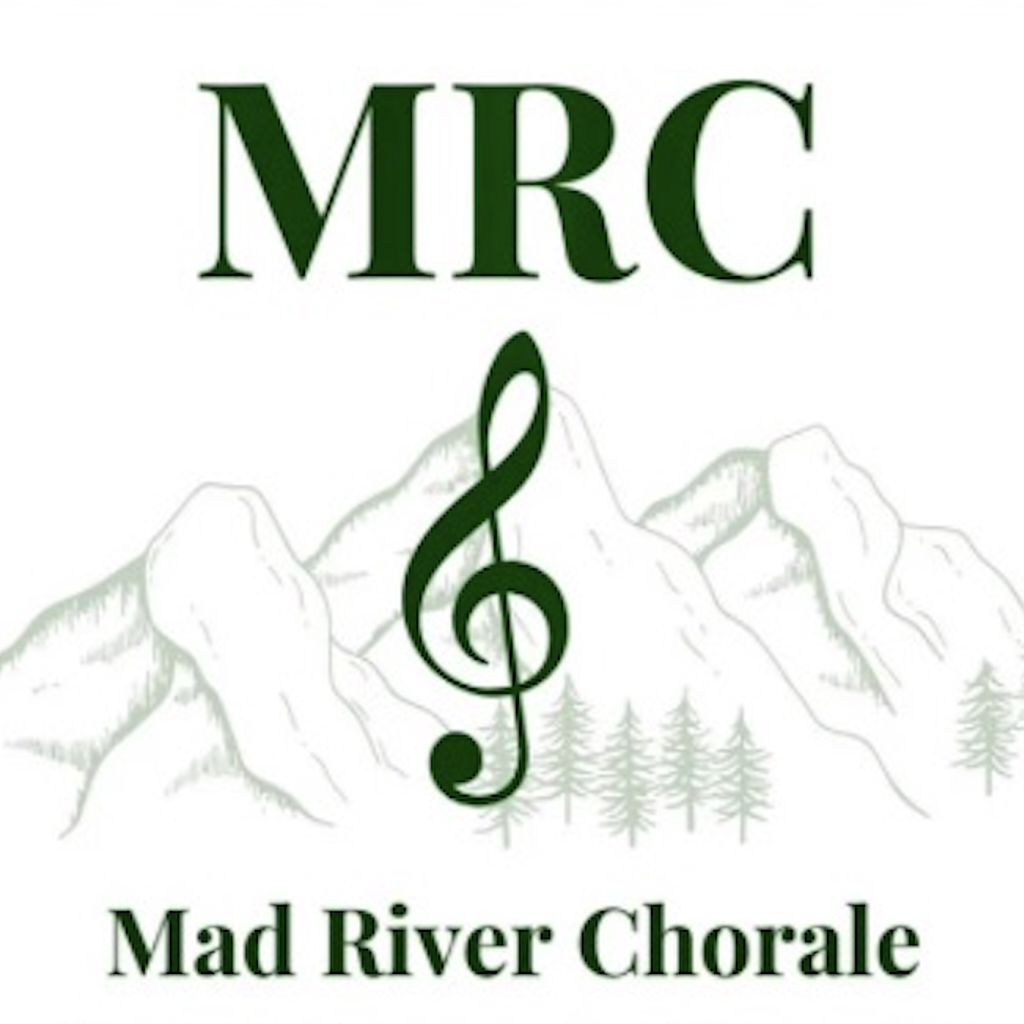Mad River Chorale
Serving our Community Through Song
The Mad River Chorale (MRC) has been inspiring singers and audiences for over 30 years. We are a welcoming non-auditioned community chorus that performs concerts twice a year, in December and in the Spring. The MRC’s goal is to provide members an opportunity to sing a rewarding and challenging repertoire and to give our audience the experience of, and knowledge about, wonderful choral music.
A Friday the 13th Valentine’s Benefit Concert
“Disastrous love” in opera and song
Warren United Church, Fri, Feb 13 at 7pm

With our annual Valentine’s Day concert landing on Friday the 13th, Mary Jane Austin has chosen a selection of songs and arias depicting stories that, for one reason or another, fall short (or worse!) of the romantic ideal.
Vocal artists Emma Cerutti, Erin McIntyre, Nessa Rabin, Adam Hall, Neil Cerutti, and Erik Kroncke with Mary Jane and Alison Cerutti at the piano present songs from West Side Story, La bohême, L’elisir d’amore, HMS Pinafore, Werther, Eugene Onegin, Gondoliers, Patience and more.
With humorous commentary by host Erik Kroncke, this will be both a fun and drama-filled evening. And there will be chocolate goodies and roses for all at the reception immediately following the performance.
This concert helps raise funds for instrumentalists and soloists that enliven the December and May concerts of the Mad River Chorale. While the concert is free, donations are gratefully accepted either in-person at the concert, by mail, or online.
The Mad River Chorale is a 501(c)(3) charitable organization. The button below takes you to our Square site for secure transactions. If you would prefer, you can send a check to the MRC at PO Box 158, Waitsfield, VT 05602.


